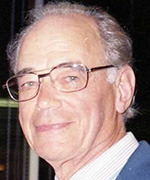Title: FDA Approves Antipsychotic With Long History of Failure
"Hoechst Marion Roussel Inc. made initial inquiries into the drug; however, in May 1996, they discontinued research, and in June 1997 gave research rights to Titan Pharmaceuticals. Titan then handed over worldwide development, manufacturing and marketing rights to Novartis in August 1998. On June 9, 2004, Titan Pharmaceuticals announced that the Phase III development rights have been acquired by Vanda Pharmaceuticals. The original launch date was scheduled for 2002. On November 27, 2007, Vanda Pharmaceuticals announced that the US FDA had accepted their NDA for iloperidone, confirming the application is ready for FDA review and approval.[6] On July 28, 2008, the FDA issued a "Not Approvable" letter to Vanda Pharmaceuticals concerning the drug, stating that further trials are required before a decision can be made concerning marketed usage of iloperidone. See, Wikipedia
FDA’s Not Approvable letter stated:
"The FDA stated that Vanda had demonstrated the effectiveness of iloperidone at 24 mg/day in the 3101 study for which the company reported results in December, 2006, and that the efficacy was similar to the active comparator, ziprasidone (Geodon(R), Pfizer Inc.). In addition, the FDA also stated that iloperidone was superior to placebo in patients with schizophrenia at doses of 12-16 mg/day and 20-24 mg/day in a prior study. However, the FDA expressed concern about the efficacy of iloperidone in patients with schizophrenia relative to the active comparator, risperidone (Risperdal(R), Johnson & Johnson), used in prior studies. The FDA indicated that it would require an additional trial comparing iloperidone to placebo and including an active comparator such as olanzapine (Zyprexa(R), Eli Lilly & Company) or risperidone in patients with schizophrenia to demonstrate the compound’s efficacy further. The FDA also stated that it would require Vanda to obtain additional safety data for patients at a dose range of 20 to 24 mg/day."
Experts in the field thought Iloperidone went down for the last time, noting that the FDA letter hinted at safety concerns about adverse cardiac effects.
A June 2008 report in the drug management journal, Formulary , indicated:
"A total of 81% of patients treated with iloperidone 4 to 8 mg/d, 78.9% of patients treated with iloperidone 10 to 16 mg/d, and 76% of patients treated with iloperidone 20 to 24 mg/d experienced ≥1 adverse event in the iloperidone/risperidone studies. The most frequently reported adverse events were dizziness, dry mouth, and dyspepsia. In the Cutler et al study, dizziness, sedation, orthostatic response, and increased weight were the most frequently reported adverse events."
Vanda Pharmaceuticals acknowledges the following risks:
Fanapt™ was generally well-tolerated and the most commonly observed adverse reactions (incidence >= 5% and two-fold greater than placebo) were dizziness, dry mouth, fatigue, nasal congestion, orthostatic hypotension, somnolence, tachycardia, and weight increased.
Additionally, Fanapt poses a serious risk similar to Pfizer’s antipsychotic drug, ziprasidone (Geodon): both drugs are associated with a risk of prolongation of the QTC interval of the electrocardiogram. This is a serious, potentially life-threatening risk for some patients.
Vanda acknowledges:
"Fanapt™ may affect heart rhythm parameters and specifically the QTc interval, which may lead physicians to consider prescribing Fanapt™ after other antipsychotics are tried first."
So, the question is, what evidence–if any–led the FDA to change its position from Not Approvable (in July 2008) to Approved (in May 2009)?
The other concern, noted by Philip Dawdy of FuriousSeasons, the patent application for iloperidone (filed by Novartis in 2003) clearly states that the drug is intended for the "treatment of affective and attention/behavioral disorders."
~~~~~
May 07, 2009
FDA Approves New Antipsychotic For Schizophrenia
The FDA yesterday approved Fanapt (iloperidone), an atypical antipsychotic made by Vanda Pharmaceuticals, for use in the treatment of schizophrenia in adults. I don’t know a lot about this drug–it’s the first antipsychotic given its initial FDA approval in years–but what I do know gives me cause for concern.
First, last year the FDA issued a not approvable letter for the drug, so there was clearly something wrong about the safety and efficacy of Fanapt at that time. What exactly we’re unlikely to know, since the FDA won’t release non-approvable letters and there’s little chance of the company doing so. What changed between then and now with the drug and its performance I cannot say.
Second, I strongly suspect that the drug will quickly be repurposed for use in other disorders, possibly even off-label. That’s been the pattern with the atypicals over the last 15 years–get a schizophrenia approval, then a bipolar approval, then market the hell out of it off-label for everything else under the sun. There’s little reason to believe that things will be different this time out, especially since the patent application for this compound clearly states that it’s intended for the "treatment of affective and attention/behavioral disorders."
So maybe Fanapt can grow up to be like Zyprexa, Seroquel, Risperdal and Abilify and be used for absolutely everything from ADHD in kids to schizophrenia. We shall see. I can assure you I’ll be watching this drug closely. Its patent expires in 2021.
The financial markets sure liked the news: Vanda’s stock price reportedly exploded 824 percent higher in after hours trading.
Posted by Philip Dawdy at May 7, 2009 12:05 AM

